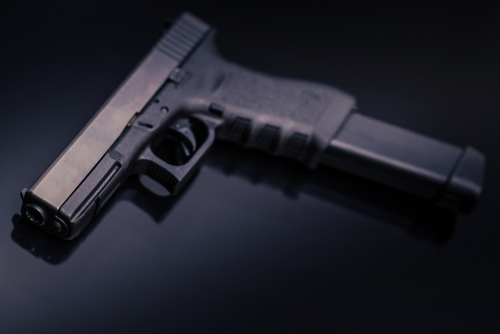
Republican Governor backs ban on already-illegal gun devices
Listen To Story Above
Alabama’s Republican Governor Kay Ivey has aligned herself with a gun control initiative aimed at prohibiting Glock switches within state borders, despite existing federal regulations already barring these devices.
We will crack down on inner city violence by enhancing penalties for dangerous felons with guns. We will expand Aniah’s Law, boost our successful Metro Area Crime Supression Unit, ban Glock switches and we will enhance supervision of high-risk juveniles. pic.twitter.com/ZMS79KMMdm
— Governor Kay Ivey (@GovernorKayIvey) February 5, 2025
A statement from Ivey’s administration, delivered through spokeswoman Gina Maiola, indicated that “Governor Ivey supports getting dangerous Glock switches out of the hands of gangs and criminals. Along with this measure, she will unveil several other public safety proposals that will support law enforcement and crack down on crime. She expects the package to have bipartisan support.”
The governor’s stance has drawn praise from Everytown for Gun Safety, a gun control advocacy group backed by Mike Bloomberg, though the organization acknowledges that federal law already prohibits these devices.
Glock doesn't make these switches, and owning one is illegal. So why would you sue a company over a product it doesn't even make and that is already illegal?
Before you comment on your thoughts, I want to let you know that about my New 40oz 2A Tumblers, 2A Designs, Vacuum… pic.twitter.com/M9pUmue9JW
— Colion Noir (@MrColionNoir) April 7, 2024
The legislative effort to implement a state-level prohibition on Glock switches originated from Democratic State Representative Juandalynn Givan, according to CBS 42’s reporting.
The governor’s office has remained silent on whether this signals a broader shift in her approach to firearm-related restrictions, particularly regarding items that might become popular among criminal elements, similar to Glock switches. Additionally, there has been no explanation offered as to how a state-level prohibition would prove more effective than the existing federal ban, which has faced implementation challenges.




